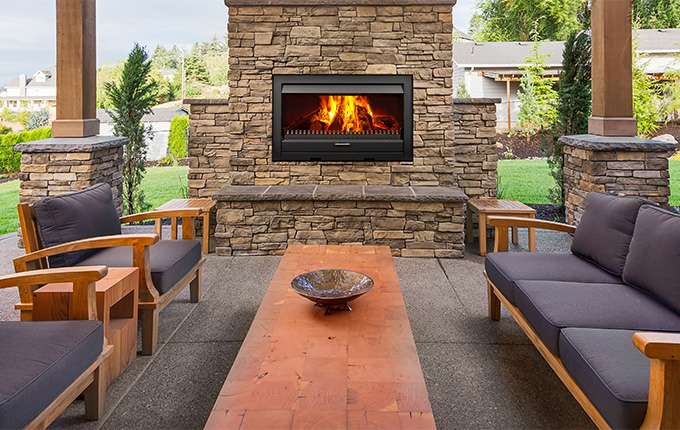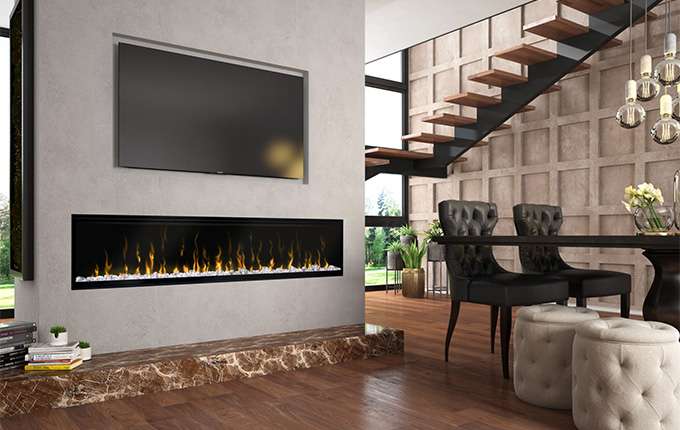Growing awareness of the importance of working towards a carbon-neutral world has led to the re-evaluation of current power sources, and the home heating industry is at the forefront of reaction to change.
The Climate Change Commission’s draft plan, which outlines ways to cut emissions in New Zealand so the country is carbon neutral by 2050, may appear aggressive at first glance, but local heating providers say it’s important to understand and be reassured that the plan is an initial document, produced by a working group, and much more consultation is yet to be undertaken. The Labour government has committed to spending the remainder of 2021 considering the report’s proposals, then deciding if and when each aspect will be implemented.
The proposed phasing out of gas in industries such as the hospitality sector will bring significant challenges, but, on the domestic front, adapting to the new normal will be less complex. This means homeowners and tradespeople won’t necessarily need to rush to find alternatives to gas, as ‘green’ hydrogen produced by renewable electricity will be gradually introduced into the natural gas supply (up to 20% mix) until 2035. Only then will new appliances need to be purchased once the mix exceeds 20%. First Gas Chief Executive Paul Goodeve recently said that switching to green hydrogen has the potential to reduce total emissions from the broader energy sector by a quarter. The Hydrogen roll-out plan would see that natural gas replaced by 100% hydrogen by 2050.
Glen Dimplex NZ Managing Director Mike Daish accepts that under the Climate Commission’s proposed plan, new domestic connections to the gas network could be at risk, but he doesn’t think that the implications around this suggested cut-off date will be instant.
Start your property search
In fact, experts in the electricity field believe it could be a decade or more before the gas roll out takes full effect – partly because it will take a number of years to get New Zealand up-to-speed with wind-powered electricity generation, rather than relying on our current non-renewable plants (i.e. coal) to generate and supply the energy required to generate the hydrogen.
“Once the hydrogen mix of gas exceeds 20% in 2035, aging gas heating systems in Kiwi homes can simply be replaced with electric, or modern wood-based fuel alternatives - as and when they reach the end of their useful lives,” says Daish.

The Matakana, an outdoor entertaining dream. The 1200 wide outdoor fire draws inspiration from wine country, good food and time spent with friends.
“We’re still selling gas fires and have solutions for both natural gas and ULPG connections.
“They are normally more expensive than an electric or wood fire, but they’re also extremely efficient.”
Daish says that as the time approaches for gas heating to be phased out - and eventually eliminated for good, consumers will be relieved to discover that there are many exciting alternatives.
Amongst the most popular of these will undoubtedly be ultra-low emission wood burners, known as ULEBs. They are 4-5x cleaner than the current environmental standard.
Masport has an international advantage in this particular field with modern cutting-edge technology developed by highly-skilled industrial designers and engineers, ensuring low emissions without compromising performance. The catalytic combustor in their ULEBs is incredibly effective at burning off by-products as the air passes through the unit, before they escape into the atmosphere.
Enrique Fugon, Brand and Product Manager at Glen Dimplex NZ Ltd, says that while the company doesn’t own this technology, they are proud to include this innovative design in the ULEB.
“Our products are always being improved upon and our experts strive to find new ways to reduce emissions and impact on the environment.”
Mike Daish says that modern Masport wood fire units offer a longer burn time which means less wood is necessary to run them and when dry wood is used as fuel, heat output is further maximised.
“Wood is a renewable fuel source, and it’s almost carbon-neutral.”

Ignite XL Electric Fires create the ambiance of a gas fire, but without the need for installation, permits or flues. With electric, the opportunities are endless.
Meanwhile, he says homeowners, along with tradespeople in the building industry are also looking more frequently at electric options, which are updated continually as new technology and designs come into the fore.
He says that the mandatory levels of insulation, ventilation and double-glazing mean consumers can choose to install electric fires for ambiance alone.
“Modern homes are more energy-efficient than ever, but people still gravitate towards the look of an open fire for comfort, even when they don’t necessarily need it for heat.”
Electric flame effect fires are rising in popularity as a sustainable alternative for modern homes. Contemporary electric flame models are quieter than heat pumps and have the added advantage of being easy on the environment with lower power usage, plus they’re readily available at large hardware stores.
“Consumers can customise their electric fireplace to suit its surrounding décor, with different fuel beds; from river rocks, driftwood, or more traditional coal beds,”
Daish adds that other benefits of the Real Flame Ignite XL electric fireplace range include the fact that there is no need for council permits, tradespeople aren’t necessarily required for installation, and the unit is simply plugged in to a power socket.
“Our current linear models offer stunningly realistic flame effects, and you can choose from ultra-modern edge to edge glass units or more traditionally styled ones.”
With plenty of time to research new heating options before the potential retirement of natural gas, consumers can find comprehensive information at www.realflame.co.nz while Aucklanders are able to explore the full range of fireplaces and comfort solutions at Ignite Fireplace Studio, 2 Poland Road, Glenfield.







































































